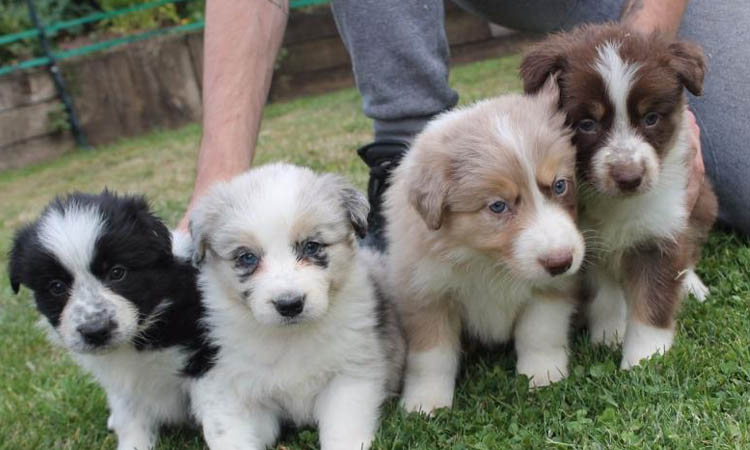
Collie dog breeds
Collies are a distinctive group of herding dogs that originated in Scotland and northern England. They are known for their intelligence, loyalty, and graceful appearance. Collies come in several varieties, with the most common types being the Rough Collie, Smooth Collie, Border Collie, and Bearded Collie. Here’s a breakdown of each:
1. Rough Collie
- Appearance: The Rough Collie is perhaps the most iconic type, made famous by the character Lassie. They have a long, flowing double coat that comes in various colors, such as sable and white, tricolor (black, white, and tan), and blue merle.
- Temperament: Known for being loyal, gentle, and great with children, Rough Collies are wonderful family pets. They are intelligent and eager to please, which makes them easy to train.
- Exercise Needs: While they are not as high-energy as some other herding breeds, Rough Collies still require regular exercise, such as long walks or playtime.
- Grooming: Their long coat requires regular grooming to avoid matting and tangling. Brushing two to three times a week is recommended.
2. Smooth Collie
- Appearance: The Smooth Collie is essentially the same as the Rough Collie but with a short, dense coat. They come in the same color varieties as the Rough Collie.
- Temperament: Like Rough Collies, Smooth Collies are loyal, intelligent, and great with families. They are often described as a bit more energetic than the Rough variety.
- Exercise Needs: They require a good amount of exercise due to their herding background. Long walks, hikes, or agility activities will keep them mentally and physically stimulated.
- Grooming: Grooming is less demanding than that of the Rough Collie, but they still shed and benefit from occasional brushing.
3. Border Collie
- Appearance: Border Collies are smaller than Rough and Smooth Collies, with a lean, muscular build. Their coats can be smooth or rough, and they come in various colors, including black and white, red and white, and merle.
- Temperament: Border Collies are renowned for their intelligence, often ranked as the smartest dog breed. They are highly energetic, incredibly trainable, and need a job to do, whether it's herding, agility training, or obedience work.
- Exercise Needs: Border Collies are high-energy dogs and require extensive physical and mental stimulation. Without proper outlets for their energy, they can become bored and potentially destructive.
- Grooming: Both smooth and rough-coated varieties require regular brushing, especially during shedding season.
4. Bearded Collie
Essentials for Your Newly Adopted Pet
Welcoming a shelter pet into your life is a beautiful journey. Here are some handpicked items to help your new friend feel safe, loved, and right at home:
- Appearance: The Bearded Collie, often referred to as the "Beardie," is medium-sized with a long, shaggy coat that covers its entire body. Their coats are typically black, blue, brown, or fawn with white markings.
- Temperament: They are playful, energetic, and full of personality. Bearded Collies are known for being friendly and social, often with a lively and joyful demeanor.
- Exercise Needs: Like other Collies, Bearded Collies are energetic and require regular exercise. They enjoy activities like herding, agility, and long walks.
- Grooming: Their long, shaggy coat requires regular grooming to prevent tangles and mats. Brushing several times a week is necessary, especially during shedding periods.
General Traits of Collie Breeds:
- Intelligence: Collies, particularly Border Collies, are among the most intelligent dog breeds. They excel in obedience training and enjoy learning new tasks.
- Loyalty: All Collie breeds are known for their strong bond with their families. They are protective, gentle, and often excellent with children.
- Herding Instincts: As herding dogs, Collies may try to "herd" people, animals, or even objects. This instinct can manifest in their behavior, particularly in Border Collies and Bearded Collies.
- Trainability: Collies are highly trainable, but they respond best to positive reinforcement. Consistent training and mental challenges help keep them happy and well-behaved.
- Health Concerns: Collies are generally healthy dogs, but they can be prone to specific health issues such as Collie eye anomaly (CEA), hip dysplasia, and progressive retinal atrophy (PRA), particularly in Rough and Smooth Collies.
Popular Uses of Collies:
- Family Companions: Rough and Smooth Collies, in particular, make excellent family dogs due to their gentle nature and protectiveness.
- Working Dogs: Border Collies are often used as working dogs on farms and in competitive herding trials due to their intelligence and herding ability.
- Therapy and Service Dogs: Collies' gentle and intuitive nature makes them good candidates for therapy work, particularly in Rough and Smooth Collies.
Summary:
Collie dog breeds are intelligent, loyal, and versatile, making them excellent family pets, working dogs, and even service animals. They vary in their grooming needs and energy levels, but all benefit from positive training and regular exercise.
Affiliate Products
Up to 75% Discount

Dog Collar with Health Monitoring
BUY NOW »
Up to 55% Discount

Luxury Faux Furhuge Napping Bed
BUY NOW »

